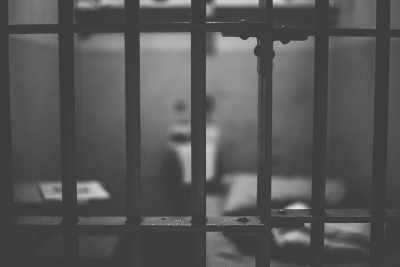Covid impact: Prisoners' access to courts, hospitals fell by 65% and 24%
By IANS | Published: February 8, 2022 09:30 PM2022-02-08T21:30:04+5:302022-02-08T21:35:23+5:30
Bengaluru, Feb 8 The pandemic has cast its long shadow in more ways than one, on the prisons ...

Covid impact: Prisoners' access to courts, hospitals fell by 65% and 24%
Bengaluru, Feb 8 The pandemic has cast its long shadow in more ways than one, on the prisons and justice system, indicates data compiled in the Prison Statistics India (PSI) 2020. An analysis of the figures by The India Justice Report (IJR), shows that prisoners' visits to courts came down by nearly a third, from about 44.5 lakhsin 2019 to 15.5 lakh in 2020.
Impacted too was inmates' access to health services, with the number of visits, made by prisoners for medical attendance, declining from 4.77 lakh in 2019 to 3.63 lakh visits in 2020. Visits by medical personnel to prisons also reduced from 24,524 in 2019 to 20,871 in 2020, while visits by judicial officers nearly halved to 9,257 in 2020 from 16,178 in 2019.
Maja Daruwala, Chief Editor of the India Justice Report, said, "The status of essential capacities decides the efficacy of the pillars of the justice system to deliver to the standards they have set for themselves. The PSI 2020 presents a grim picture of the state of prisons through the pandemic. Despite the many efforts to decongest these institutions, and minimise the risks of contagion inherent in these overcrowded places, their overall condition has not improved."
The PSI 2020 presents data from January 2020 to December 2020.
As of December 2020, nationally, overcrowding stood at 18 per cenr, a marginal reduction of 2 percentage points from the previous year. This figure is the national average across 1,306 prisons. In nine states overcrowding rates are more than the national average.
"Much of this overcrowding is accounted for by the presence of 'undertrials'. Their share has increased from 69 per cent in Dec 2019 to 76 per cent in Dec 2020; showing that for every 1 convicted prisoner, there are 3 people in custody awaiting 'investigation, inquiry or trial'. This follows a long-term trend. Five years ago, in 2016, undertrials accounted for 68 per cent of the prison population. As with all preceding years, a majority of prisoners come from amongst the poor and illiterate. Besides chronic overcrowding, other long term co-morbidities in the prison system have persisted and indeed worsened", a statement from IJR observed.
Pointing to the continuing shortage of medical officers and staff across the country during this period traversing a pandemic, the IJR notes that in some states, their numbers have gone down.
Nationally, vacancies among medical staff and officers stand at about 33 per cent, which means 1 in every 3 posts has not been filled. There were 797 medical officers in the country's prisons to serve nearly 489,000 inmates. On average, this means each medical officer was looking after 613 inmates. However, the Model Prison Manual 2016 requires there to be 1 medical officer for every 300 inmates. The sanctioned strength in 17 states does not meet this criterion. Only 9 states have managed to reduce their medical officer vacancies, the IJR elaborated.
"We need vacancies to be filled on priority level, at the first responder level, at the grassroots level, at the local level. There must be a full complement that can deliver justice in a reasonable amount of time. Training people to be good judges, good policemen, and rehabilitative prison authorities, that's the other. You must have more staff to do correctional work. It requires infrastructure, training and budgets. But we neglect this as in our own peril. Justice is as important as food and safety" Maja Daruwala told .
From January to December 2020, total deaths went from 1,764 in the previous year to 1,887. The deaths remain categorised as 'natural' 'unnatural' and 'cause not known', and deaths related to Covid have not been disaggregated.
The India Justice Report is brought out by a collective of organisations working towards the reform of the justice sector as a whole. They are Centre for Social Justice, Common Cause, Commonwealth Human Rights Initiative, DAKSH, TISS-Prayas, Vidhi Centre for Legal Policy and How India Lives. It is supported by Tata Trusts, Rohini Nilekani Philanthropies and the Tree of Life Foundation. The maiden IJR was published in 2019.
Disclaimer: This post has been auto-published from an agency feed without any modifications to the text and has not been reviewed by an editor
Open in app